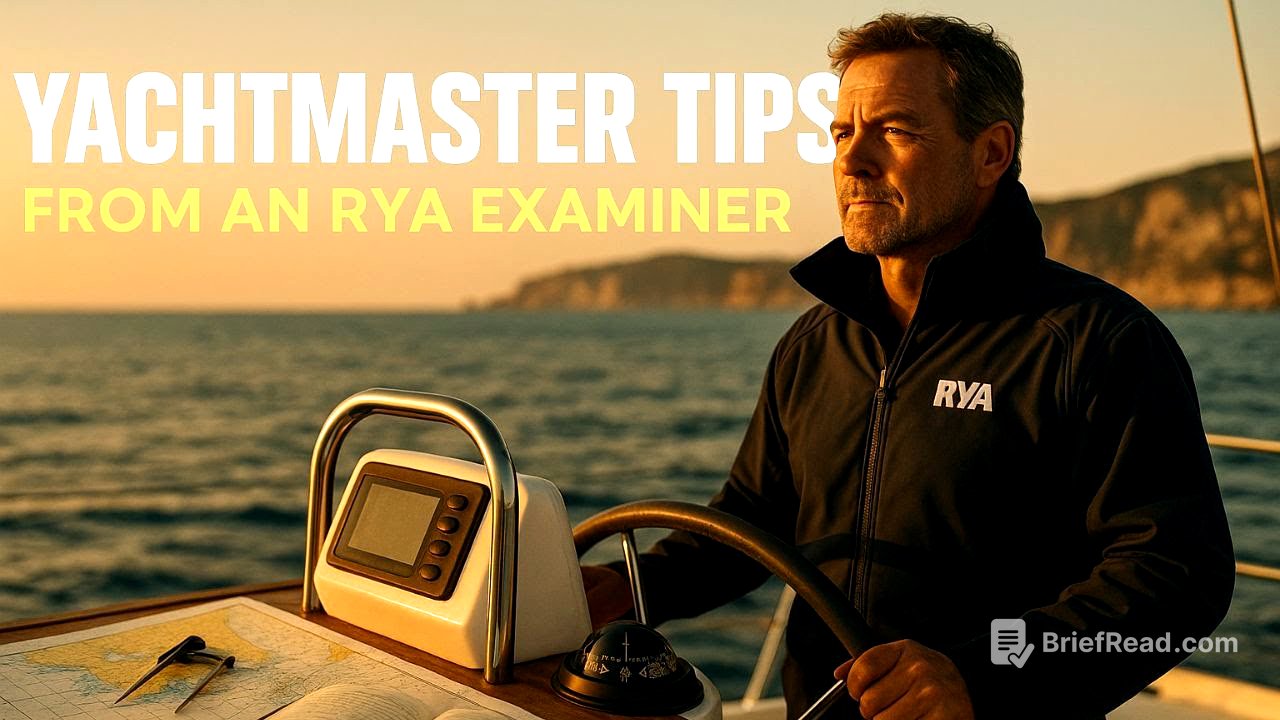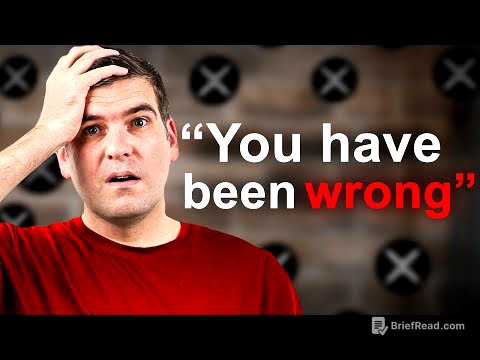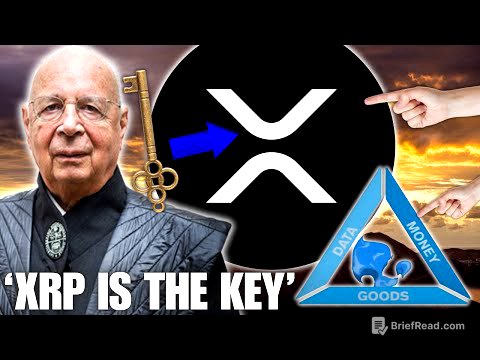TLDR;
This video features an interview with Ian James, a professional yacht captain and Yachtmaster examiner, who shares his insights on what he looks for in a Yachtmaster candidate. He discusses the importance of practical experience, theoretical knowledge, and communication skills. He also touches on qualifying passages, preparation courses, and common mistakes candidates make, offering advice to those preparing for the exam. Key takeaways include the need for genuine experience, thorough preparation, and a captain-like mindset.
- Examiners prioritise the candidate's ability to safely operate the boat.
- Candidates should possess strong theoretical knowledge, practical skills and communication abilities.
- Genuine experience and thorough preparation are crucial for success.
Introduction [0:06]
Ian James, a professional yacht captain and Yachtmaster examiner, is interviewed about his role and what he looks for in candidates. He has been an examiner since 2005, after working as an instructor for five years. His involvement as an examiner came about by invitation.
Key Attributes of a Successful Candidate [0:50]
Examiners look for candidates who can safely operate the boat, possess strong theoretical knowledge and practical skills, and demonstrate excellent communication and delegation abilities. While each examiner has their own priorities, safety is paramount.
Qualifying Passages: Importance and Assessment [1:47]
Qualifying passages are important to demonstrate a candidate's experience. Candidates typically provide a log detailing their passages, including the types of boats they've worked on. The quality of the miles is more important than the quantity. Candidates should be able to recall details about their qualifying passages as skipper, such as the distance, fuel consumption, and weather conditions. Genuine experience is essential for understanding what is required for offshore passages.
First Impressions and Identifying Weaknesses [5:24]
Examiners often form an initial impression of a candidate within the first 10-15 minutes based on their responses, which reveal their level of experience. Examiners are skilled at identifying weaknesses, especially when experience is lacking. It's the candidate's responsibility to ensure they have the right experience and prerequisites before taking courses and exams.
Preparation Courses and Essential Knowledge [7:01]
Preparation courses can help candidates prepare for the exam. These courses assume candidates already have Yachtmaster-level skills and knowledge, focusing on exam-specific skills. Candidates should prepare thoroughly, as schools cannot force-feed all the necessary information in a short time. Key areas to study include course to steer, secondary ports, and collision regulations. A deeper understanding of the rules, especially regarding safe speed, is crucial. Candidates who know the rules by number stand out.
The Pass/Fail Decision: The Exam Report Form [10:45]
Candidates should review the exam report form to understand what is being assessed. Instructors should use the report form to guide candidates on what is expected. The form covers preparation of the boat and crew, passage planning, boat handling, pilotage, seamanship, navigation, chart work, meteorology, and overall ability as skipper. Examiners aim to provide a fair result and start with the assumption that the candidate will pass. The overall ability as a skipper is the most important factor.
Key RYA Requirements and Examiner Expectations [14:11]
The RYA has specific requirements, including good diesel engine knowledge for motorboat candidates and avoiding accidental jibes for sailing candidates. In non-tidal areas, candidates must demonstrate course to steer on paper. Examiners look for safety, communication, and proficiency. Candidates should focus on doing well in other areas. Examiners make allowances for nervousness at the beginning of the exam.
The Importance of Preparation and In-Depth Knowledge [18:19]
Candidates should be well-prepared before attending the school. Examiners scratch the surface and probe deeper if initial responses are weak. Candidates with thorough knowledge may find the exam easier because they provide comprehensive answers. Cramming information in a short time makes it difficult to retain under pressure. There's no excuse for not knowing voyage or basic vessel identification before the exam.
Common Weaknesses: Weather and a Captain-Like Mindset [22:14]
A common weakness is weather knowledge. Candidates often rely solely on apps like Windy and lack the ability to interpret synoptic charts. They should understand weather phenomena and how to respond. Candidates need to think like a captain, taking responsibility for the boat and crew. This involves a shift in mindset towards command and decision-making.
Final Advice: Thinking and Communicating Like a Captain [24:12]
Candidates should think and communicate like a captain, delegating tasks and taking a supervisory role. They should ensure the crew has enough fuel (food and water) for the passage. The examiner wants candidates to be successful and is there to assess their abilities. The goal is to help the examiner make the decision to pass the candidate.









